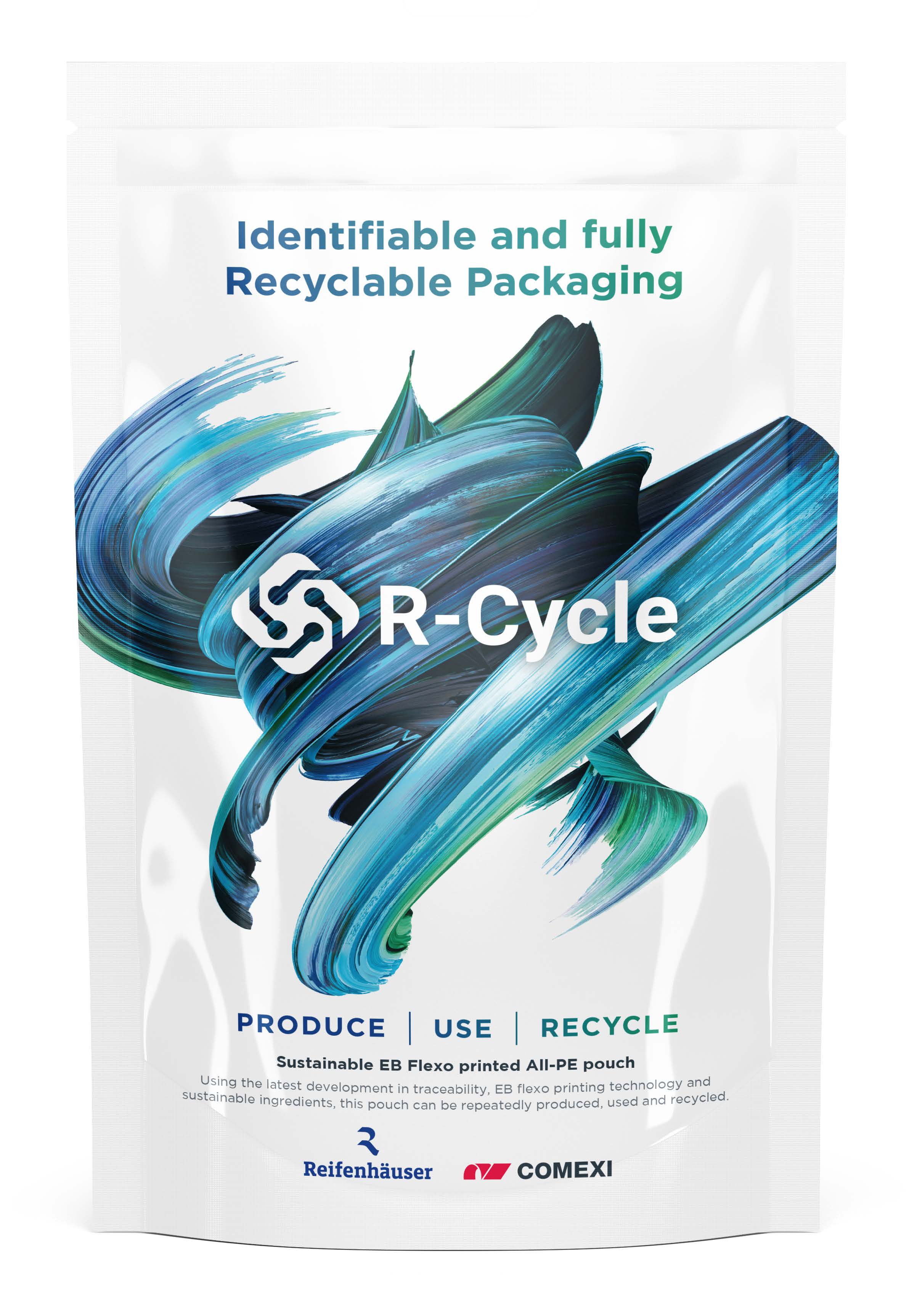
Digitalization meets sustainability - more and more companies are using R-Cycle's Digital Product Passport for sustainable plastic packaging. The passport enables all stakeholders in the value chain of plastic packaging to easily exchange recycling-relevant information in an open standard format across company boundaries and to make it accessible for data-based and thus more precise waste sorting. R-Cycle was founded as a cooperative initiative by the Reifenhäuser Group and other technology companies and organizations and developed to market maturity.
Looking at today's waste streams, recyclable packaging cannot be sorted with sufficient precision for high-quality recycling. Thus, even fully recyclable products usually end up in thermal recycling or, at best, downcycling to lower-quality products takes place. With R-Cycle, production machines automatically read and record recycling-relevant data as soon as a package is produced, route it through the value chain, and make it retrievable via appropriate marking (e.g., digital watermarks or QR codes) on primary and end products. This allows waste sorting facilities to easily identify recyclable packaging and form single-variety, recycling-friendly fractions. This is the basis for obtaining high-quality recyclates and building a functioning circular economy.
The R-Cycle data platform can be networked with a wide variety of software systems, right down to individual production lines: from film or injection molding machines, to processing, packaging and filling machines, to waste sorting and recycling systems. The tracing technology behind R-Cycle is
based on GS1 standards – the leading global network for cross-industry process development and founding member of R-Cycle. In addition, under the auspices of GS1 Germany, the standardization project PDS4CircularPlastics (Processes and data sharing approach for enabling circular plastics value networks) has been launched. The project has the goal to develop a GS1 guideline and is based on the results of the R-Cycle initiative
Dr. Benedikt Brenken, Director R-Cycle, explains: "R-Cycle is accessible as an open community for all companies, institutions and stakeholders that have a legitimate interest in the field of circular economy for plastic packaging and want to use, support or further develop R-Cycle themselves. Members gain access to a broad network of application-experienced partners and knowhow in digitalization and sustainability. The goal is to realize their own applications, generate benefits by networking the value chain and jointly establish R-Cycle worldwide."
In addition to improving product sustainability, manufacturers also increase their process efficiency and product quality by using the Digital Product Passport. Accurate information about source materials accelerates and optimizes production, while recording product properties represents a benefit for customers in the downstream process. In addition, the Digital Product Passport facilitates the fulfillment of (emerging) legal information requirements, such as in the calculation of the carbon footprint, proof of recycled content, or in the area of Extended Producer Responsibility (EPR). In this way, time-consuming manual calculations can be automated to meet requirements from legislators or customers.






